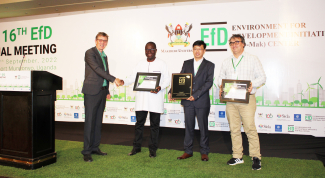We explore how spatial interaction affects the strategic use of municipal income when deciding between 1) an optimal long-run expenditure strategy versus 2) using the current income to finance current activities, a phenomenon known as the permanent income hypothesis. Even when this hypothesis is grounded in temporal logic, insufficient attention has been given to the impact of spatial dependence on this type of budget decision. Therefore, we present two reasons why spatial interaction adds new insight to this discussion.


